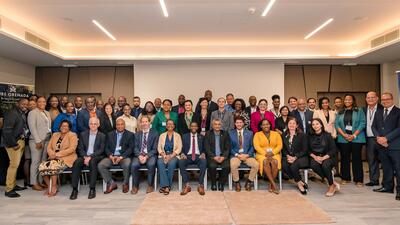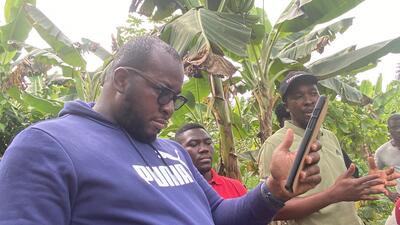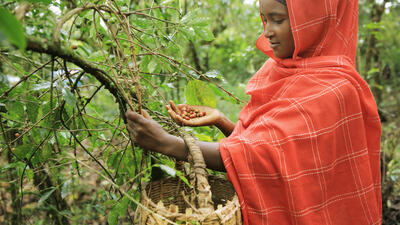Sustainable development
In the past seven years in my role as Executive Director of the International Trade Centre (ITC), I have had the privilege to travel the world, promoting trade and development. I have observed countries, companies and people improving their understanding of the global trading system and taking advantage of export opportunities.
In Africa, Asia and Latin America, more people are now connected to global value chains than was the case in 2006. This has happened despite the global economic crisis that started in 2008, and which still impacts many parts of the world. Still, it is clear that many economies are putting more emphasis on creating sustainable trade, while many others simply do not seem to care about the footprint that trade leaves on their societies.
Sustainable development in trade is an uphill struggle that will not be won outright. Whatever way you look at it, trade – and the effects of trade – are bound to leave a mark on the environment. And while trade has contributed to millions of people leaving poverty, there is no doubt that there have been social consequences as well.
Of course, this does not mean that we should take a laissez-faire approach and do nothing about the negative effects of trade. In fact, it is possible to achieve trade growth in developing countries (as in developed countries), while at the same time minimizing the environmental and social impact. This goes to the core of what we do at ITC, and some of this work is featured in this issue of International Trade Forum. These goals are supported by other United Nations agencies, such as the United Nations Environment Programme, the United Nations Economic Commission for Africa and the United Nations Conference on Trade and Development. As outlined by Pascal Lamy, the Director-General of the World Trade Organization, the Aid-for-Trade agenda is another tool that ultimately seeks to achieve sustainable development.
Still, what we have been witnessing to a certain extent in climate and environmental discussions of the past 10 years is that a lot of effort has been put into defending self-serving national interests. This can be said about both developed and developing countries. In fact, most citizens across the world see or experience the effects of climate change and acknowledge the likelihood of the link with human activity. Meanwhile, many leaders sadly continue to fail to address the growing problem.
That is a shame, because it is they who hold the key to unlocking a much greener future, one that is sustainable and one that walks hand-in-hand with trade and development.
By the time you read this issue of International Trade Forum, I will have stepped down as Executive Director of the International Trade Centre. It has been seven years during which a lot has been achieved, despite the additional challenges imposed on ITC and its partners by the global economic crisis. While there is still much work to be done in trade and development, I do believe we are in better shape than we were seven years ago.
I would like to thank all the people I have worked with during my time as Executive Director for the support you have shown for ITC and for helping to ensure that ITC is now better positioned to achieve export impact for good.















